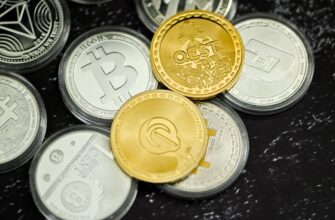What Does “Crypto Equal” Really Mean?
“Crypto equal” represents the revolutionary idea that blockchain technology can level financial playing fields globally. Unlike traditional systems where wealth and access are concentrated, cryptocurrencies offer tools for economic inclusion—letting anyone with internet access participate in decentralized finance (DeFi), invest in assets, and build wealth regardless of geography, status, or background. This movement aims to dismantle barriers like banking deserts, discriminatory lending, and centralized control over monetary systems.
How Cryptocurrency Promotes Financial Equality
Blockchain’s core architecture fosters fairness through:
- Permissionless Access: No gatekeepers. Anyone can create a wallet and transact without approval from banks or governments.
- Reduced Entry Barriers: Micro-investments (even $1) in assets like Bitcoin or Ethereum enable gradual wealth building.
- Cross-Border Inclusion: 1.7 billion unbanked adults can use crypto for remittances, savings, and commerce at lower fees.
- Transparent Systems: Public ledgers reduce corruption by making transactions auditable by all users.
- DeFi Democratization: Lending, borrowing, and earning interest via platforms like Aave—without credit checks or minimum balances.
Current Challenges to Crypto Equality
Despite its promise, obstacles remain:
- Knowledge Gaps: Complex tech deters non-tech users; educational resources are unevenly distributed.
- Regulatory Uncertainty: Inconsistent global policies create instability, especially in developing economies.
- Infrastructure Limits: Rural/remote areas lack reliable internet or devices for crypto access.
- Market Volatility: Price swings disproportionately affect small investors with limited buffers.
- Scams & Exploitation: Novice users face higher risks from fraudulent schemes.
Pioneering Projects Driving Change
Innovative initiatives are accelerating crypto equality:
- Stellar Lumens (XLM): Focuses on low-cost remittances and banking partnerships in underserved regions.
- Gitcoin Grants: Funds public goods and open-source projects via decentralized community donations.
- Humanitarian Aid: UN agencies use crypto wallets to deliver instant aid to refugees in conflict zones.
- Educational DAOs</n
- Proof-of-Stake Networks: Ethereum’s shift to PoS reduces energy costs, making participation eco-friendly and affordable.
Your Role in Advancing Crypto Equality
Individuals can contribute to this movement:
- Educate others through free resources like Coinbase Learn or Binance Academy.
- Support DAOs (Decentralized Autonomous Organizations) funding equality-focused projects.
- Advocate for clear, inclusive regulations with policymakers.
- Use crypto for cross-border payments to reduce remittance fees for migrant workers.
- Diversify investments into “impact tokens” backing social initiatives.
Crypto Equal FAQ
Q: Can crypto truly reduce wealth inequality?
A: Yes—by enabling asset ownership, micro-investing, and global market access. However, education and regulation are critical for sustainable impact.
Q: Isn’t crypto only for tech experts?
A: Not anymore. User-friendly apps (e.g., MetaMask, Trust Wallet) simplify buying/storing crypto. Projects like RabbitHole gamify learning for beginners.
Q: How does DeFi promote equality?
A: DeFi platforms offer financial services (loans, savings) without intermediaries, benefiting those excluded from traditional banking due to low income or documentation.
Q: What’s the biggest threat to crypto equality?
A: Centralization creep. If large entities dominate networks (e.g., through mining/staking control), they could replicate existing power imbalances.
Q: Are governments supporting crypto equality efforts?
A: Progress is mixed. While countries like El Salvador embrace Bitcoin, others impose restrictive policies. Grassroots advocacy is key to fair frameworks.








